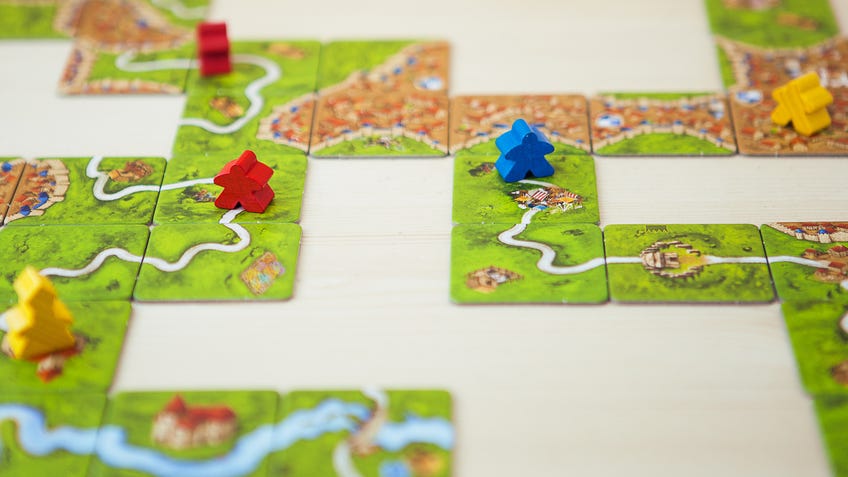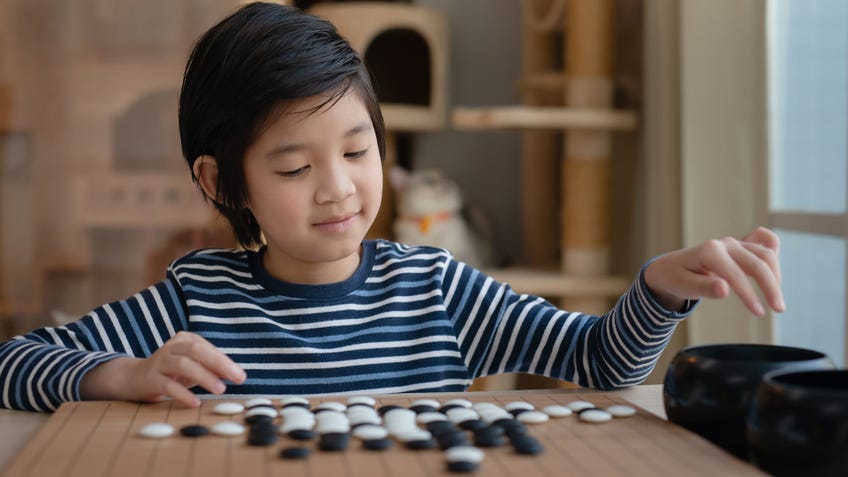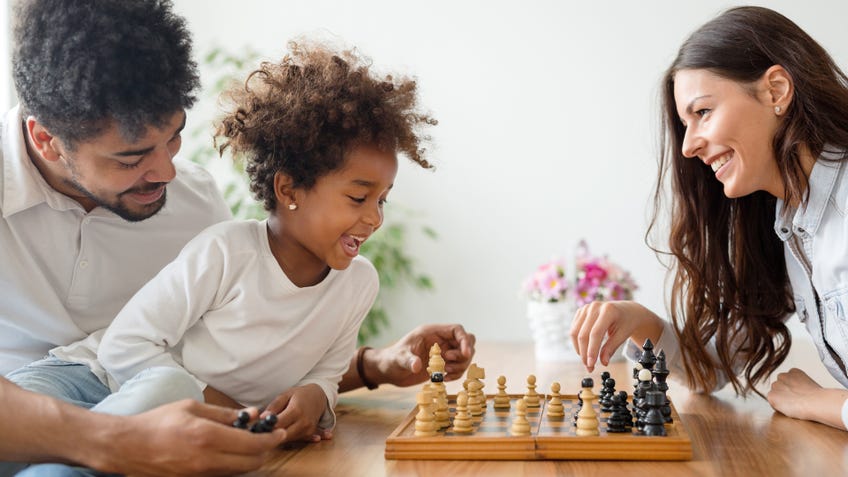Trying to get your kids into board games? It's not about what you play, but how you play
Magic: The Gathering creator Richard Garfield on how to share grown-up games with younger players.
I have often been asked by parents what my favourite kids’ games are. I usually myself talk more about how I play rather than what games in particular I play. I will play the occasional game that the kids can play completely, but often I find myself playing games that are beyond my youthful opponents - games that I simply want to play with them.
When I first introduce a game, I am usually doing something I call semi-solitaire play. As the children learn over many games, I will shift over to handicapped play of some form. I find that it is not important to tell children many rules - after all, kids are used to navigating the world with partial information. I teach the bare minimum for them to get started; sometimes not really explaining anything beyond the flavour and general goals. My adult opponents have often accused me of using that teaching mode with them as well, but with kids it is intentional.
Sometimes hobbyists play their games alone - solitaire - to learn the rules, try new strategies or perhaps just for fun. This is very close to what I do the first few times I play a game with kids. I play with open hands (though I often keep mine hidden), and let the kids play a position. Whenever it is their turn to act, I think of a few different options and explain them. I let the child pick an option. So, it is like solitaire play, but the child is something like a randomiser for the opponent’s moves. When the child is more familiar with the way the game plays they may want to leave your playbook; that is fine, of course.
I find that it is not important to tell children many rules - after all, kids are used to navigating the world with partial information.
For example, when playing Carcassonne with a child too young to really get the rules, you might ask whether they want to put a meeple on the road or the city. You might say something like “You already have a couple meeples in cities, maybe you want one on the road now?”, “If you put one in the city, you might be able to link up to that city there” or “you can put one on this road, but it is your last meeple, you might want to save it.” Occasionally there is an obvious move, and you can explain it to them - but one of the reasons Carcassonne is such a nice game is that there are often a few possibilities. The more they play the less guidance they will want and the more independence they will show.

Playing cooperative games works particularly well with this approach. Playing someone’s position in a cooperative game can lead to a bad play experience, but that capability here is just a benefit - you can take as much of the burden as is appropriate for the child’s experience.
What games should you try? It will depend on your interests and your child’s interests. There is a good chance that your child will be interested in anything you are interested in. Some themes are better than others (maybe some dinosaurs wouldn’t hurt), but kids enjoy games like Uno and Pachisi which have no theme at all. Some mechanics will work better than others; games that have a lot of bluffing, for example, are hard to play in a semi-solitaire way. But, basically, if you would be even close to willing to play it solitaire, it will probably be fine with a child companion.
Once a child can actually play a competitive game, I like to choose a handicap that allows me to challenge myself; ideally one that allows the child to win sometimes but not all the time. Children I am around will play a lot of games, and it is important that they can handle both winning and losing. If you play enough games with reasonable handicaps, there will be plenty of both to experience.

Handicapping is not very common in modern board game culture, which is a shame, but it is vital to playing with kids if you don’t want to continually feel like you are playing down to their level. You can, with creativity, choose a handicap to present almost any level of challenge you like. There are usually lots of options depending on the game. I divide handicaps into two groups.
What games should you try? It will depend on your interests and your child’s interests. There is a good chance that your child will be interested in anything you are interested in.
What I call ‘hard handicaps’ are changes to the rules that favour one of the players. One of the easiest is bonus score in victory point-based games. You can give piece advantage or extra time on their clock in a game like chess. Larger hand size, bonus cards, rerolls - there are many ways to adjust games. Some games, like Go, have well established handicapping that you can use as well.
You don’t have to stop there, though. You can give the child fun new powers. Give them two moves to your one in a game like chess, or a fairy piece like the empress which can move like a knight or a rook. Let them draw a card every time they complete a ticket in Ticket to Ride. If you want some ideas I have no doubt any board game community could give you oodles of variations to try.
The second type of handicaps are what I call ‘soft handicaps’, which are restrictions you place on your play to give you a challenge. This might be playing a worse deck in a game like Magic: The Gathering, using no two-letter words in Scrabble or a strange opening in chess. The rules of the game are the same, but you are intentionally playing in a restricted way. Properly chosen, this limitation will allow you to play as hard or as casually as you like with your child.
You don’t need to establish your soft handicap immediately, but can just keep your eye out for unusual strategies that you wouldn’t normally try and throw yourself into them. This isn’t ‘playing down’ to the level of your opponent; this is exploring less-travelled roads within your game.
Game play is a wonderful hobby. It is educational and socially stimulating. You can share it with almost any age opponent; I played with my kids at a young enough age that the main difficulty was keeping them from sitting on the board. Don’t put your gaming on hold - there is no reason to wait until they are 12-plus or to suffer through children’s games that don’t interest you.


